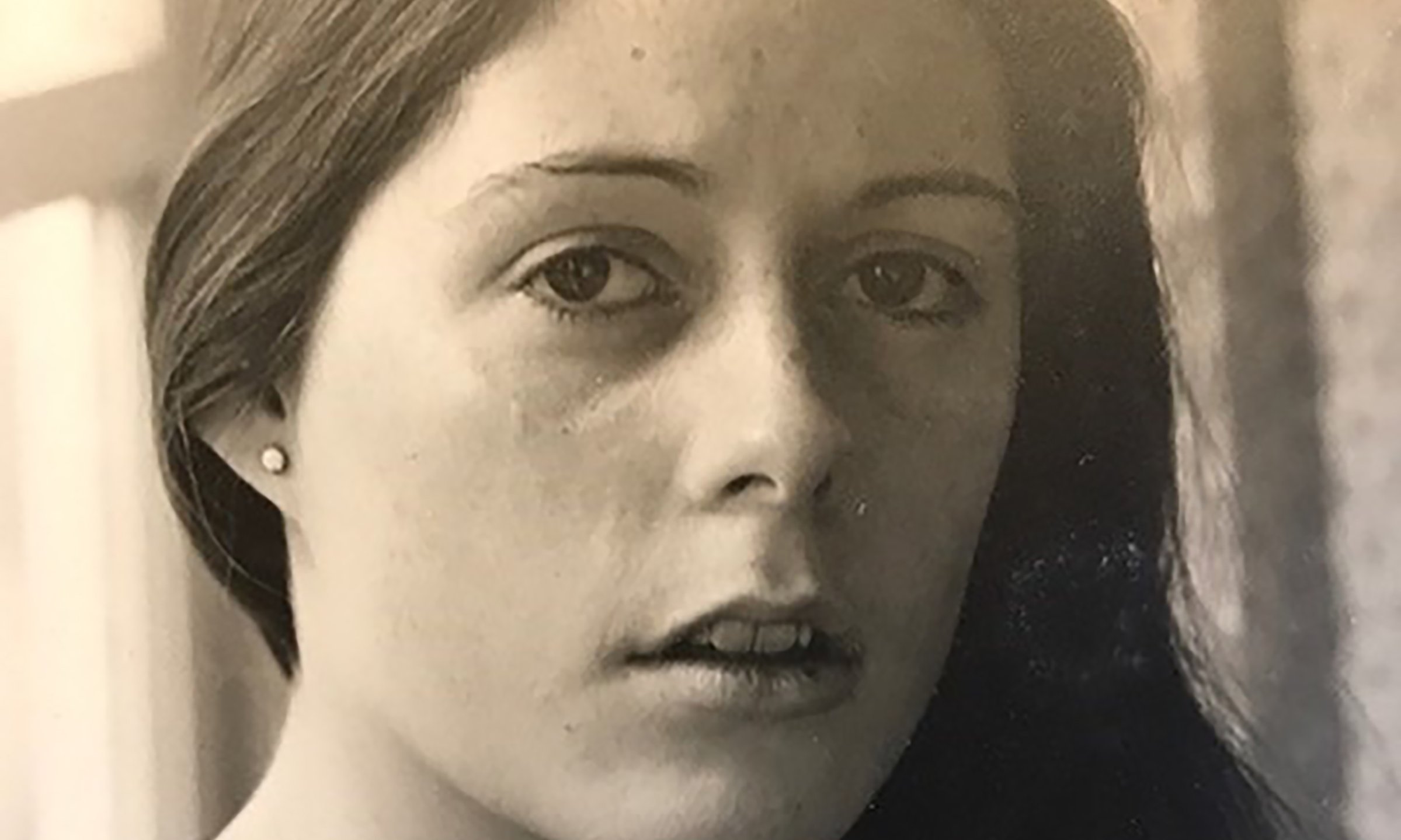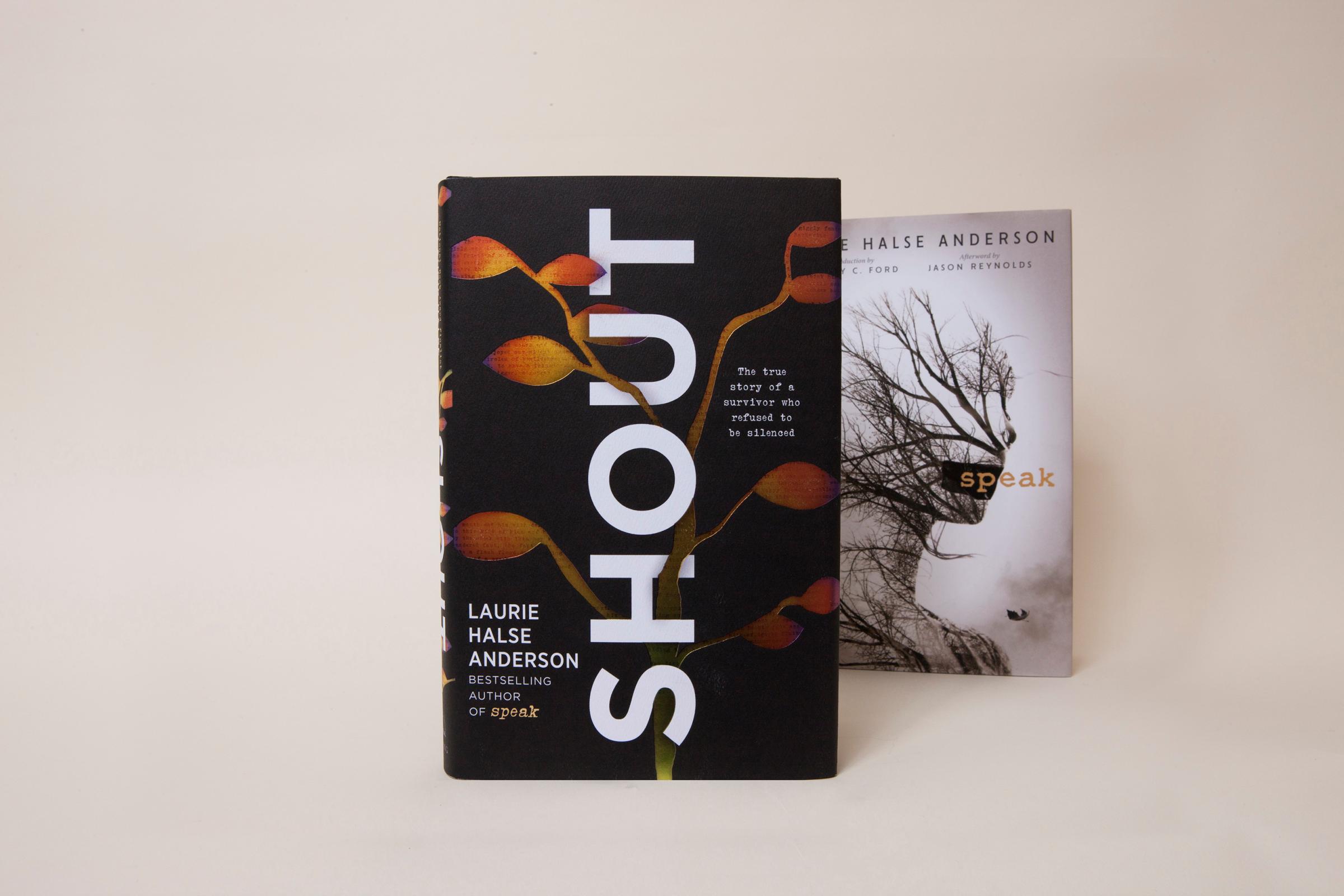
Twenty-three years ago, Laurie Halse Anderson woke up to the sound of a young girl wailing. Pulling herself from bed, she rushed to check on her daughters. Both were sleeping peacefully. The cries, she realized, had come from her own nightmare—an image of a girl, broken and sobbing. She sat down to write about what she’d dreamt. Those midnight notes turned into Anderson’s first novel, Speak, a landmark work of young-adult fiction about a 14-year-old girl’s battle with depression after she is raped by an older peer.
In the 20 years since Speak was published in 1999, it has sold more than 3 million copies and won multiple awards. The novel has been analyzed in classrooms and adapted into a 2004 movie starring Kristen Stewart. In that time, Anderson’s book-signing table has become a nondenominational confessional, a sacred site where those who have suffered sexual violence can lean in to whisper their stories in her ears. Now, inspired by the rising tide of the #MeToo movement and our national reckoning with abuse, Anderson is sharing her own story.
In Shout, a memoir written in free verse, out March 12, Anderson lays bare wrenching memories from growing up with an alcoholic father and a distant mother, as well as heartfelt tributes to survivors and hopeful calls for empathy and equality. She began writing in the fall of 2017, around the time that #MeToo took hold. “This book was written in rage, literally,” she says, leaning against the wall of a Danish pastry shop in New York City in February. “Lines of poetry just started raining in my head.” She’s never published poems before, save for one in an anniversary edition of Speak, and couldn’t guess whether her publisher would spring for a rage-lit collection. But at 57, she says, “I’m officially at the I don’t give a f-ck anymore age.”

As a writer, Anderson has always been unafraid to go there. Speak, pioneering for its head-on discussion of rape, helped pave the path for a new generation of authors to tackle tough issues in books for teens, a defining feature of YA literature today. John Green, a YA heavyweight and one of the many who stand on Anderson’s shoulders, called Speak “one of the first seriously good books published for teenagers to be read widely by them.” Even so, the novel has weathered dissent, challenged for its heavy themes and even deemed “soft pornography” by a man seeking to ban it from Missouri schools in 2010. (Anderson wrote in response that any grown man who found the rape of a 14-year-old titillating had bigger issues, and Judy Blume stepped in to defend the book.)
With cheerful red glasses, a bright streak of white in her long hair and a cinnamon bun before her, Anderson in person emits approachable artist vibes—a stark contrast to the tone of Shout, which, well, shouts. Her poems raise urgent alarms, warning against the evils propagated by a culture that values dominance over respect.
When we meet, she is a little tired—her elder daughter gave birth to her first child the day before, and Anderson was at her bedside—but open. It’s easy to assume that a woman who has made a side career out of speaking candidly with kids about tough topics—her other novels tackle alcoholism, eating disorders and self-harm, to name a few—has always been that way. But it wasn’t until about five years after Speak came out that Anderson publicly shared her own truth. She was onstage at an Arizona high school the first time a kid asked if what happened to Melinda in Speak had happened to her, and she said yes: she was also raped, at age 13. She saw nodding heads around the room. “I didn’t know then that I would be talking about this for the rest of my life,” she says, “but that was when I knew that I was on a path I hadn’t recognized.” In Shout, Anderson uses her experiences to light a path for others to find purpose:
Too many grown-ups tell kids to follow
their dreams
like that’s going to get them somewhere
Auntie Laurie says follow your nightmares instead
cuz when you figure out what’s eating you alive
you can slay it
Silence was a family tradition as Anderson grew up moving around northern and central New York. Her father Frank, a United Methodist minister, was a suicidal alcoholic, haunted by posttraumatic stress disorder after serving in World War II, during which he was assigned the harrowing task of cleaning up Dachau. He didn’t speak to his daughter for 40 years about what he’d seen at war. Her mother Joyce, whom Anderson describes as resilient but prone to distancing herself from reality, looked past it the time her husband hit her. Following their example, Anderson didn’t tell a soul when a new, older friend raped her on the rocks by the local creek one summer day. That is, until she was 38 years old, looking at her own teen daughter and realizing she needed to address her past to help protect her kids. Back when it happened, she faulted herself—she’d been wearing those shorts. She feared if she told her parents, they would blame her too, and worse—her father might shoot her attacker.
The first person Anderson told was a therapist. She describes that moment as a beautiful bone fracture, rebreaking something that had been wounded and healed improperly, so it could close up the right way this time. She is whole now. “I’ve walked my desert walk and come home in the night,” she says. “I’m good.” But her parents went to their graves never knowing the truth. Tears well in her eyes when she talks about it. “I would have wanted to hear that it wasn’t my fault,” she says. “And that they could make me feel safe again.”
Anderson raised her own daughters, later alongside two stepchildren, with a bluntness that ran counter to her upbringing, understanding that being open about the little things might make them feel safer coming to her with big issues. She led her kids in saying vagina, penis and testicles out loud until the words became ridiculously funny and discomfort fell away. She required her children’s would-be suitors to join the family for dinner before taking them out on dates. Her mother had dropped a box of tampons in the bathroom during her first period, leaving her to decipher the instructions. When her own daughter got her period, Anderson offered cheery congratulations and an armful of puberty books. Stephanie Anderson, now 33, remembers her mom persuading a gynecologist to see her in a hurry when she was 17, in love and ready to have sex, and she’ll never forget hearing about the time her mom spoke to her 11th-grade English class about masturbation. (She stayed home sick that day.) “Things that I found very embarrassing as a teenager,” she says over the phone while breastfeeding her newborn, “now I see, Wow, what a cool mom I had.”
The line of fans waiting to meet Anderson at the Strand Book Store grows longer by the minute, but she greets each face with fresh energy and requests permission to offer a hug. A few are satisfied with a selfie, but most linger. A high school teacher asks what to say to boys exhibiting signs of toxic masculinity: “Figure out if the kid is performing for an audience; don’t judge them, but let them know what the laws are.” A seventh-grader asks for writing tips: “Don’t worry about the message, because every reader is different.” Then a woman approaches, trembling, and drops her voice to disclose her story. Anderson grasps her hand and shares a wordless moment before offering advice, reassurance and a hotline number for the Rape, Abuse & Incest National Network. After a long hug, she looks into the woman’s eyes. “Deep breath, ready?” The woman nods. “Go get ’em.”
Sometimes Anderson weeps in the shower after a night like this. But far from a burden, she sees these stories as gifts. “People say, ‘Oh, you’re absorbing all that pain.’ Really what it feels I’m absorbing is the trust that person is putting in me,” she says. But for the thousands of stories she’s heard, she can still be surprised. In Shout, she writes about the moment when, on the Speak movie set, a stocky male electrician walked up to her and said, “I am Melinda.” Since then, she has worked to understand how sexual violence impacts people of different backgrounds. Surprise works the other way too. Boys still raise their hands during her school visits and ask why Melinda was so upset, since the assault couldn’t have lasted long.
Just weeks after Anderson was raped, the boy who did it died in a blaze of performative bravado—she heard he lay down in the street at night and lost a game of chicken with an unwitting car. Anderson wept at his funeral, so relieved she wouldn’t have to face him at school. But that boy lost the opportunity to become a better person, she says. “We have to do better by our teenagers, because they screw up–everybody screws up,” she says. Our next steps, now that we’ve heard so many survivors’ stories, are to help parents teach their kids about consent and seek restorative justice for victims. Anderson is optimistic, today in particular buoyed by the birth of Maxwell—her sixth grandchild, all of whom are boys. “Isn’t that great? We get to help shape the next generation of testosterone,” she says. “We can fix this. We have to.”
More Must-Reads from TIME
- Cybersecurity Experts Are Sounding the Alarm on DOGE
- Meet the 2025 Women of the Year
- The Harsh Truth About Disability Inclusion
- Why Do More Young Adults Have Cancer?
- Colman Domingo Leads With Radical Love
- How to Get Better at Doing Things Alone
- Michelle Zauner Stares Down the Darkness
Write to Lucy Feldman at lucy.feldman@time.com